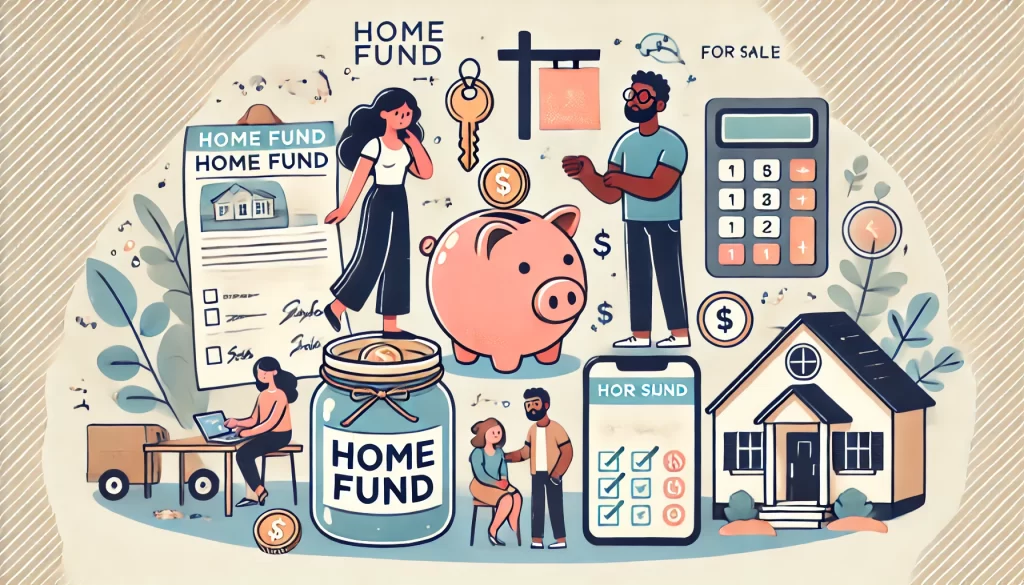Starting your journey on the property ladder is exciting and rewarding. It’s a big step towards stability and success. For the first-time homebuyer, buying a home is more than a deal—it’s a dream come true. But, the home buying process can seem overwhelming without the right help.
That’s why we’ve put together this guide. It’s full of tips for buying your first home to make your journey smoother.
First, you need to understand the financial side. Use online tools to figure out monthly mortgage payments. Also, gather all the pre-approval documentation you need. Knowing what to expect is key.
The time before you buy is crucial. It can take anywhere from 30 to 90 days. But, the preparation time is what really matters.
Remember, the price of the home is just part of the story. There are many other costs, like closing fees and property taxes. These costs add up and vary by location. So, it’s important to tailor your plan to your situation.
It’s also important to know that first-time buyers usually put down 6 to 7% of the home’s price. Interest rates can change, affecting your long-term costs. This guide aims to help you understand these numbers and guide you to your first home.
Assessing Your Financial Readiness for Homeownership
Buying your first home is a big step. It’s not just about being ready emotionally. You also need a solid financial foundation. Let’s explore the key financial points to consider before making this big decision.
Understanding the Full Cost of Homeownership
Buying a home is more than just the price tag. You’ll need to pay a down payment, which can be as low as 3.5% with FHA loans. For better mortgage terms, aim for a 20% down payment. Also, closing costs, which are 2%-5% of the home’s price, are a must.
Working with a real estate agent for the first home can help. They can explain these costs clearly, avoiding any surprises.
Creating a Budget Blueprint
Creating a detailed budget is crucial when buying a home. You’ll need an emergency fund covering three to six months of living costs. Keep your debt-to-income ratio below 43% for better mortgage chances.
Plan for monthly costs like property taxes, insurance, and maintenance. A first home checklist can help organize your finances.
Calculating Your Affordability with Online Tools
Online calculators are a big help. They estimate your monthly housing costs based on income, debts, and interest rates. These tools show what you can afford, preventing financial strain.
For specific advice, talk to financial experts like MortgageDepot. They can guide you on the best loan for your situation.
The Importance of Mortgage Pre-Approval
Starting your journey to buy your first home is exciting. Knowing the benefits of mortgage pre-approval can make it even better. It helps you stand out, especially in competitive markets.
Financial places like PNC Bank offer loans with just 3% down and no PMI. They check your credit score and income. This leads to a pre-approval letter showing how much they’ll lend. This letter is key for sellers and real estate pros.
Pre-approval tells you how much house you can buy. It’s a key tip for buying your first home. Online services like Better Mortgage can give you a pre-approval fast. But, remember, these letters are only good for 30 to 90 days.
When looking for the best rates, get quotes from different places. Many credit checks in a short time won’t hurt your score much. A good credit score can get you better mortgage terms. This shows why pre-approval is so important.
In short, pre-approval is more than just a first step. It makes you look like a serious buyer. It helps you negotiate better and can speed up the buying process. It’s a crucial tool for buying your home.
The Hidden Expenses of Buying Your First Home
Buying your first home is a big step. But, there are hidden costs that might surprise you. Knowing these expenses helps you smoothly move into your new home and keep your finances healthy.
Evaluating Closing Costs and Fees
Closing costs are a big part of buying a home. They usually range from 2% to 5% of the mortgage. This includes fees like loan origination and home appraisal, which can cost $300 to $400.
Being aware of these costs helps you plan your budget better.
Maintenance and Improvement Costs Over Time
As a homeowner, you’ll face maintenance and improvement costs. These can include lawn care, snow removal, and big repairs. You might also spend on new furniture, which can cost around $16,000.
It’s important to include these costs in your ongoing budget.
How Property Taxes and Insurance Affect Your Budget
Property taxes and insurance are ongoing costs. They can impact your annual budget a lot. Property taxes depend on your location and the value of your home.
Homeowners insurance is also a must. Its cost varies based on the coverage you choose. Planning for these expenses helps avoid financial surprises later.
Setting Realistic Home Buying Goals and Timelines
Thinking about buying your first home? It’s important to know the difference between buying vs renting your first home. Buying a home is more than just a purchase. It requires careful planning and the right timing. A good timeline can make the switch from renting to owning easier, helping you manage your expectations and schedule.
Creating your first home checklist is a great start. Start by focusing on five neighborhoods by early spring. Try to find a real estate agent and a mortgage professional by the end of April. This slow pace helps you stay on track and adjust as needed.
Don’t forget about your finances. You might think you need a 20% down payment, but some loans only require 3%. Knowing this can make buying a home seem more possible. Also, closing costs usually range from 2% to 5% of the loan amount, so be prepared.
To save for a down payment, try setting aside $833.33 each month. This can add up to $10,000 in a year. For more tips on saving money, check out these smart ways to save money every day.
The mortgage process takes about 30-45 days for approval, and closing comes 30-60 days after signing. Getting prequalified can make things faster. By getting ready before you start looking and knowing the financial basics, you can set achievable goals for buying your first home.
Finding the Right Home Loan: What First-Time Buyers Should Know
Buying your first home is a big step, no matter your age. It’s important to understand mortgages well. In your 20s, start planning your finances early. This will help you when you’re ready to buy a home.
Check out the roadmap for achieving financial goals by 30. It offers smart financial tips for the future.
Fixed-Rate vs Adjustable-Rate Mortgages
There are two main mortgage types: fixed-rate and adjustable-rate. Fixed-rate mortgages have the same payment every month for 15 to 30 years. This makes budgeting easier.
Adjustable-rate mortgages (ARMs) start with lower rates but can go up. They add uncertainty to your finances. Choose based on your financial situation and the market.
The Pros and Cons of Government-Backed Loans
Government-backed loans like FHA and VA are good for first-time buyers. They often need lower down payments. FHA loans need 3.5%, while VA and USDA loans might not need any.
These loans also offer lower rates and tax benefits. But, they have rules and limits. Make sure you qualify before choosing.
Improving Your Credit Score for Better Loan Terms
A good credit score can get you better mortgage deals. Scores above 760 can lower your rates and down payments. This makes buying more affordable.
Check your credit reports for free every year. Keep your debt-to-income ratio under 43%. This shows lenders you’re reliable. With smart planning, you’ll be ready to buy your first home.
Conclusion
Saving for your first home is a significant but rewarding journey that requires careful planning, budgeting, and understanding of all associated costs. By assessing your financial readiness, securing mortgage pre-approval, and preparing for hidden expenses, you can set yourself up for success. Remember, it’s not just about saving for a down payment; it’s about planning for the full scope of homeownership. With the right strategies and a realistic approach, you can turn the dream of owning your first home into a reality.






